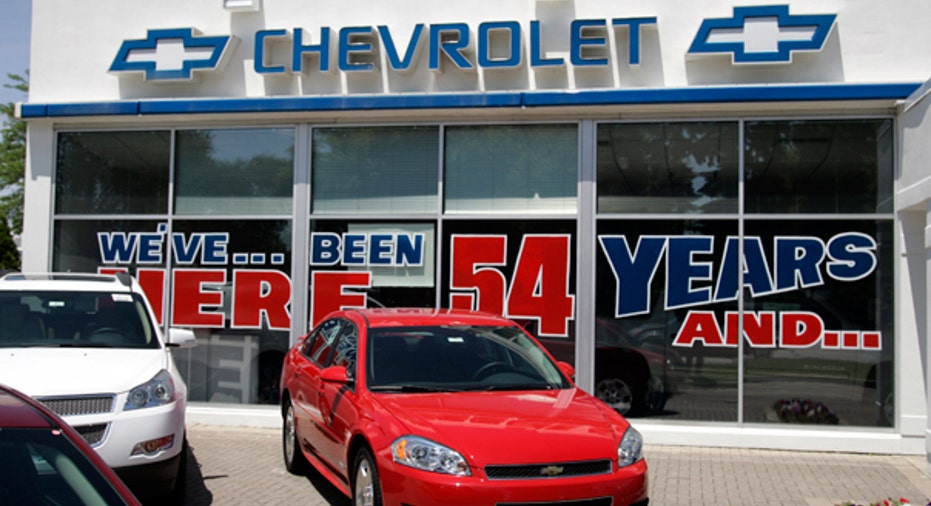Fresh Off the Lot: Extended Car Loans

New vehicle prices are increasing, and credit is becoming more readily available, ushering in an era of extended-term car loans. A decade ago, a 60-month car loan was the norm. That's been replaced by the 72-month auto loan; some consumers are getting terms that last more than seven years.
"Consumers tend to be comfortable paying a certain monthly amount and over time, we haven't really seen that amount increase much," says Melinda Zabritski, senior director of automotive credit at Experian Automotive, the Costa Mesa, California, provider of market research for the automobile industry. "But cars are costing more, which is pushing out longer-term loans."
According to TrueCar Inc., the Santa Monica, California-based automotive pricing information company, the average transaction price for light vehicles was $31,087 in March 2013, up 1.1 percent from March 2012.
Check out long-term car loan rates at Bankrate.com.
Pick Your Own Terms if You Have Good Credit
While an average price tag of more than $30,000 can shut many consumers out of the new car market, if that $30,000 with interest is spread over 90 months, it will be more manageable and the car dealers know that. Instead of letting the consumer walk off the showroom floor, the automobile dealer's financing department will do its best to meet the payment needs of the customer.
The better your credit score is, the greater the chance of getting an extended car loan. That's because the longer the term of the loan, the greater the risk there is for the lender that the borrower will default and the car will be worth nothing. That's why subprime borrowers or those with less-than-stellar credit normally aren't targeted, says Jim Landy, CEO of CarFinance Capital, the Irvine, California, automobile financing company.
Extended Terms Mean You Pay More
"Loan terms going over 72 months is really a rarity in today's below-prime sector market," Landy says. "Some luxury-model prices are north of $60,000 or $70,000, so more and more banks will offer extended terms beyond 72 months."
Consumers who opt for a longer loan amount will undoubtedly pay more in interest over the life of the loan. According to Bankrate.com's auto loan calculator, a $25,000 auto loan at an interest rate of 4 percent will cost you $564.48 per month for 48 months, or $27,095.04 over the life of the loan. The same amount and interest rate over 84 months will cost you $341.72 per month but $28,704.48 over the life of the loan. So, while you pay less each month, the total cost of the car is greater.
Upside-Down Loans are Common with Extended Terms
That's not the only risk associated with this type of financing. "When you lengthen the term of your loan, you are pushing out your negative to positive equity," says Eric Lyman, vice president of editorial and consulting for ALG, the Santa Barbara, California, automobile industry research company.
That means it will take you that much longer to break even on your car purchase. Any consumer who buys a new car will see the value of that vehicle depreciate as soon as they drive off the dealer lot.
According to Lyman, it typically takes 42 months, or 3 1/2 years, to break even on your loan when trading your car in. That means you can take out a new car loan and forget about the old one. But if you have a loan for a longer period, you may have to pay the dealer in order to trade in for a new car or carry the existing debt over to the new car loan.
"Let's say you have a car that's worth $12,000 but you owe $14,000 on the loan," Lyman says. "Your options are to borrow another $2,000 and go further into debt, or drive away and not buy that new car."
Used Car Values Also Impacted
Extended-term loans also can have a negative impact on the overall car market, particularly for used cars, Lyman says. That's because dealers and car manufacturers don't want to lose a sale and will go to great lengths to help car buyers who have a loan that's worth more than the vehicle.
"What we've seen historically is car manufactures will offer cash rebates as a way to eliminate that negative equity," Lyman says. "What happens is, it lowers the price of that new car. If you start to see more cash incentives, you see the value of used cars deteriorate. It's very damaging for the overall industry in terms of used-car values."
Consumers who opt for a longer loan amount will undoubtedly pay more in interest over the life of the loan.
Know Your Buying Pattern
Despite all the negative aspects of extended-term car loans, there is a fair share of consumers signing on the dotted line. But whether it makes sense for you boils down to the type of car owner you are.
According to industry experts, while consumers on average will want to trade their car in after four years, there are those holdouts who keep their vehicle until it fully depreciates. What side you fall on will help determine the best loan for your situation.
Experian's Zabritski says if you are the type of automobile owner who wants a new car every couple of years, a longer-term loan might not be the best loan for you because of the greater likelihood that you'll be in a negative equity situation when you go to trade it in.
But if you are the type of person who holds on to their vehicle for years and can only afford a certain type of monthly payment, then a longer-term loan could be the way to go.
"You have to know your own buying pattern to figure out whether or not it makes sense," Zabritski says.
Copyright 2014, Bankrate Inc.



















